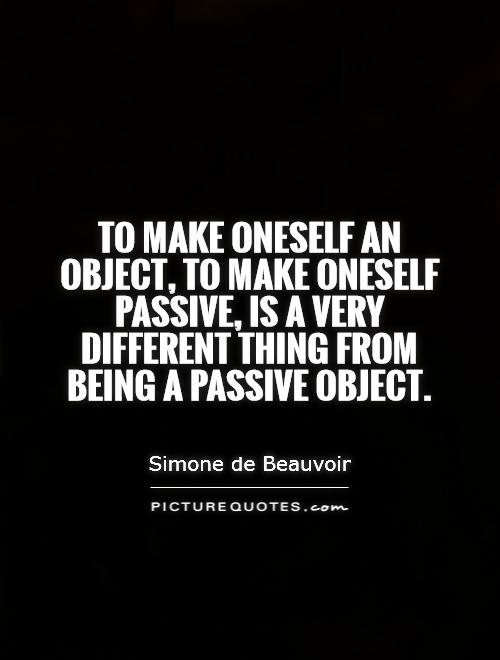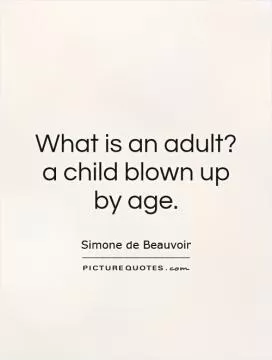To make oneself an object, to make oneself passive, is a very different thing from being a passive object

To make oneself an object, to make oneself passive, is a very different thing from being a passive object
Simone de Beauvoir, a prominent French existentialist philosopher and feminist thinker, explored the concept of agency and autonomy in her works, challenging traditional notions of gender roles and societal expectations. In her seminal work, "The Second Sex," de Beauvoir famously stated, "One is not born, but rather becomes, a woman." This assertion underscores her belief that gender is not a fixed identity but rather a social construct that is imposed upon individuals.In the context of the quote, "To make oneself an object, to make oneself passive, is a very different thing from being a passive object," de Beauvoir is highlighting the distinction between actively choosing to conform to societal expectations and being passively subjected to them. She argues that individuals have the agency to resist oppressive norms and structures, even if they may face consequences for doing so.
For de Beauvoir, the act of making oneself an object involves internalizing societal expectations and conforming to them without question. This can manifest in various ways, such as women being expected to prioritize their roles as wives and mothers above their own desires and ambitions. By willingly adopting a passive role, individuals relinquish their autonomy and agency, allowing themselves to be defined and controlled by external forces.
On the other hand, being a passive object implies a lack of agency and control over one's own life. This can result from systemic oppression, discrimination, or social conditioning that limits individuals' ability to assert themselves and make choices that align with their own values and beliefs. De Beauvoir challenges the notion that passivity is inherent or natural, arguing that it is a result of societal structures that restrict individuals' freedom and agency.












 Friendship Quotes
Friendship Quotes Love Quotes
Love Quotes Life Quotes
Life Quotes Funny Quotes
Funny Quotes Motivational Quotes
Motivational Quotes Inspirational Quotes
Inspirational Quotes